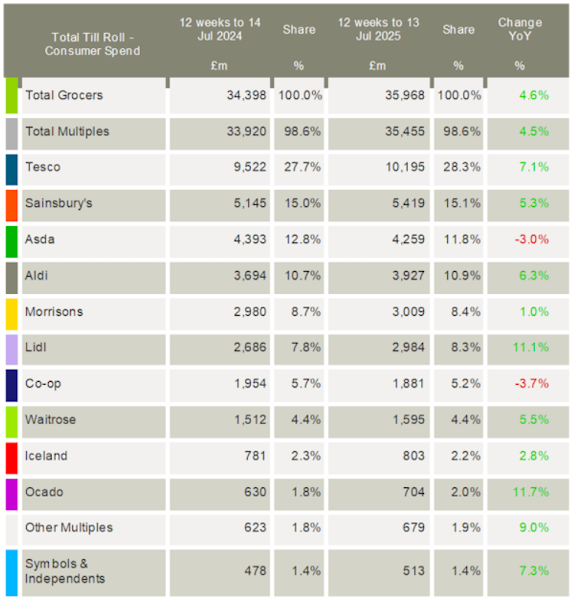Asda is reported to be in advanced talks about a £400m deal to offload some of its real estate assets to an investment house to help fund its turnaround plans.
According to Sky News, Blue Owl Capital, a New York-listed asset management group, has emerged as the frontrunner to buy roughly 20 Asda supermarkets and lease them back to the struggling retailer. Sources indicated that a deal could be formally agreed upon within weeks.
Asda has undertaken sale & leaseback deals in the past, notably in 2023 when it struck a £650m deal with US-based Realty Inc.
A spokesperson for the retailer declined to comment on the talks with Blue Owl Capital but said: “Sale & leaseback [transactions] have been a feature of the retail industry for many years.
“While maintaining a strong freehold base remains central to Asda’s property strategy, we will consider suitable opportunities to unlock value from our property portfolio as part of our material programme of investment into the business.”
While sales at Asda are still in decline, recent industry data suggests that there are signs of recovery after significant investment in cutting prices and improving its offering.
NamNews Implications:
A spokesperson for the retailer declined to comment on the talks with Blue Owl Capital but said: “Sale & leaseback [transactions] have been a feature of the retail industry for many years.
“While maintaining a strong freehold base remains central to Asda’s property strategy, we will consider suitable opportunities to unlock value from our property portfolio as part of our material programme of investment into the business.”
While sales at Asda are still in decline, recent industry data suggests that there are signs of recovery after significant investment in cutting prices and improving its offering.
NamNews Implications:
- Sale & leaseback represents a capital gain for a struggling business.
- But it can add an additional rent burden…
- Asda need the money but is obviously intent on keeping sale & leaseback to a minimum.
- (keeping in mind an exit strategy that will optimise the ‘eventual’ sale/refloat of the business)
- Meanwhile, fingers crossed…






